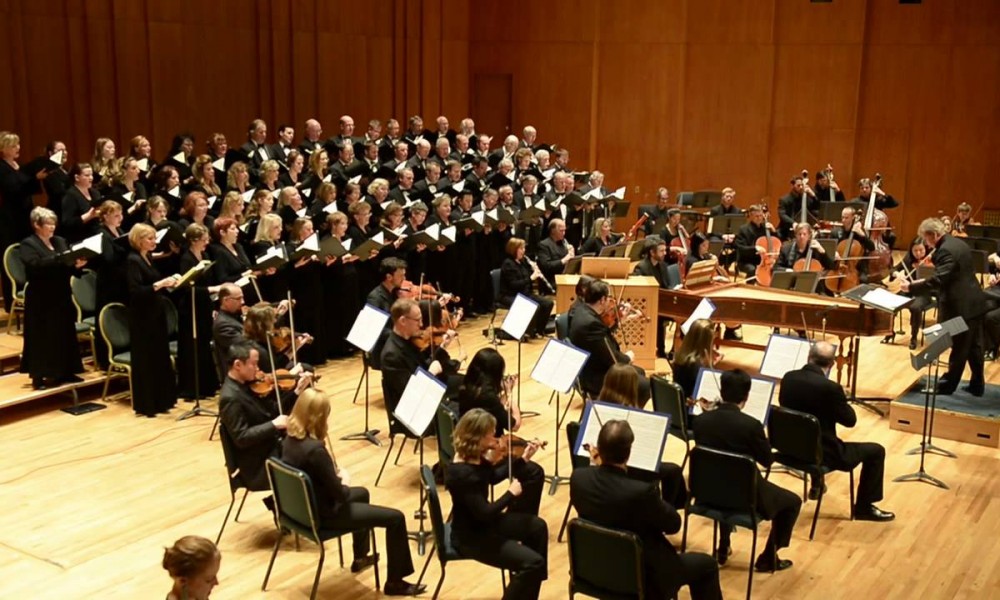Associate Conductor Rei Hotoda leads the Utah Symphony and the 50-voice Messiah Chorus during the annual “Messiah Sing-In” concert on Saturday, November 28 at 7 PM at Abravanel Hall. The Messiah Chorus, comprised of volunteer singers from Utah community ensembles in partnership with the Utah Symphony Chorus, joins feature soloists and the 2,000-voice Abravanel Hall audience in this traditional kick-off to the Salt Lake City holiday season. Tickets, priced from $10 to $37, are available for purchase through www.utahsymphony.org or by calling (801) 355-2787. Tickets increase $2 on the day of the performance.
This performance will feature Utah Opera Resident Artists soprano Jessica Jones, mezzo-soprano Sarah Coit, tenor Christian Sanders and baritone Markel Reed, who will perform solos and combine their voices with audience members and the Messiah Chorus, which consists of volunteer singers from the Utah Symphony Chorus Alumni, current Utah Symphony Chorus and Utah Opera Chorus members, and singers from the University of Utah’s Chamber Choir and A Cappella Choir, two choir collaborators who will perform with the Utah Symphony Chorus throughout the 2015-16 season.
George Frideric Handel’s Messiah is an oratorio composed in 1741 with the combination of vocal and instrumental elements, utilizing scriptural texts from the King James Bible and the Book of Common Prayer. While the structure of the concert resembles that of an opera, like all oratorios, it does not use theatrics in the reflection of Jesus Christ as Messiah. The text comprises three parts: the first being prophecies by Isaiah; the second focuses on the Passion and ends with the “Hallelujah” chorus; then Christ’s glorification in heaven and the resurrection of the dead conclude the work.
It is said the practice of standing for the “Hallelujah” Chorus is based upon legend. The lore follows that King George II first stood for the chorus in 1743, making it necessary for all of his subjects to stand. No one actually knows whether or not he did this or if he was even at the performance. Another legend states that the audience rose to their feet in awe of Handel’s mastery as a spontaneous show of emotion during the premiere. It is also interesting to note that, contrary to modern convention, Handel clearly intended Messiah for the Easter observances rather than Christmas, and that the performances in his day were always given in the spring.





No comments